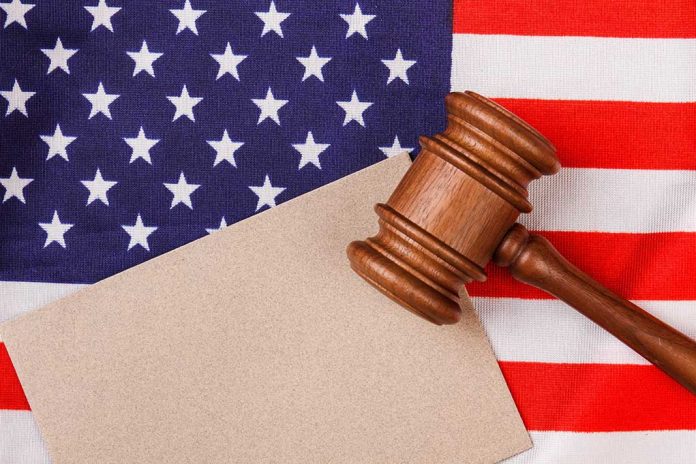
Idaho’s abortion trafficking law stands, but the battle over free speech in legal terms fires on.
At a Glance
- Idaho can enforce against harboring or transporting minors for abortions without parental consent.
- The law’s recruitment ban faces blocking due to First Amendment conflicts.
- The ruling balances free speech with legal jurisdiction over minor abortions.
- Lawsuit proceeds, highlighting both limitations and rights.
Idaho’s “Abortion Trafficking” Statute
The 9th U.S. Circuit Court of Appeals has upheld Idaho’s controversial “abortion trafficking” law. This decision allows enforcement against anyone who harbors or transports a minor for an out-of-state abortion without parental consent. However, an aspect prohibiting recruitment for such procedures was blocked, referencing First Amendment rights.
The law, implemented in 2023, criminalizes actions like recruiting, harboring, or transporting minors. Penalties range from two to five years in prison. Despite the mixed ruling, Attorney General Raul Labrador viewed it as “a tremendous victory” for pro-life advocates.
“Appeals court allows Idaho to enforce its ‘abortion trafficking’ law; Decision reverses district court injunction that blocked law in late 2023”: Mia Maldonado of Idaho Capital Sun has this report.
And Brendan Pierson of Reuters reports that “Idaho https://t.co/ZOAPbm2a53
— Howard Bashman (@howappealing) December 3, 2024
Constitutional Conflicts
The ruling spotlights the tensions between state and federal law. Circuit Judge M. Margaret McKeown clarified that harboring and transporting don’t classify as protected speech, yet recruiting does involve protected elements. The Idaho law’s recruitment block underscores free speech concerns.
This legal nuance continues to fuel debates, particularly with Democratic judges backing the ruling against dissent from Republican-appointed Judge Carlos Bea. This dynamic further ignites the discourse about state’s rights and constitutional freedoms.
Reactions and Next Steps
Responses to the ruling are intensely divided. Idaho Attorney General Raul Labrador hailed the decision, emphasizing state interests in protecting life. Conversely, plaintiffs view the protection over recruitment discussions as a critical win, as it ensures Idahoans can engage openly in abortion dialogues.
“We will not stop protecting life in Idaho,” Attorney General Labrador notably said.
Amidst this backdrop of legal victories and also losses, the path forward remains uncharted. As the lawsuit persists, the conversation about balancing state rights and individual freedoms continues, shaping the national canvas of abortion laws post-Roe v. Wade.












